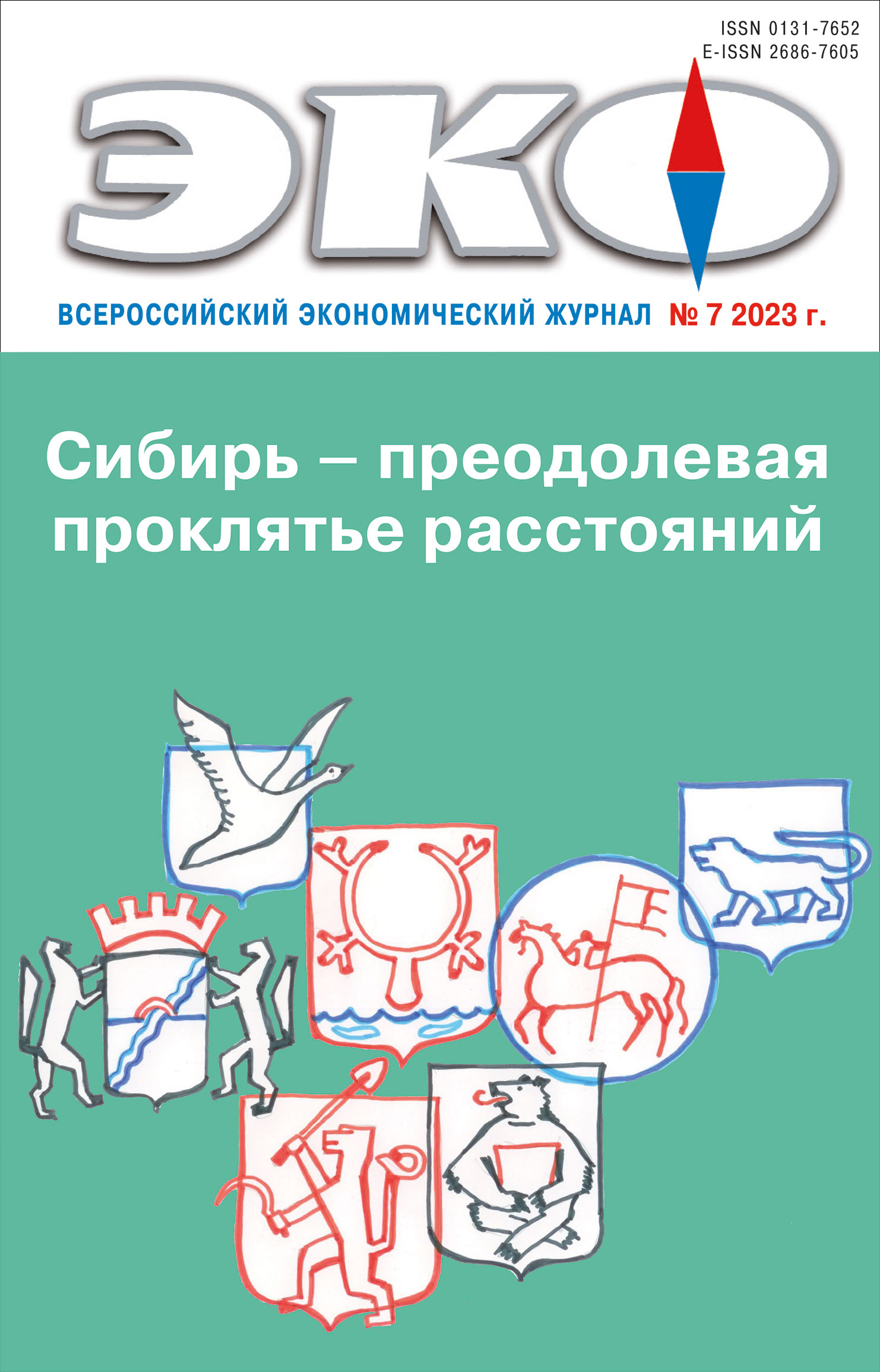ТРАНСГРАНИЧНОЕ ВЗАИМОДЕЙСТВИЕ
Опубликован 28.06.2023
Ключевые слова
- международные санкции; экономические санкции; комплаенс; эффективность санкций
Как цитировать
1.
Федюнина А, Симачев Ю. Всегда ли международные санкции достигают своей цели? Ограничения санкционной политики. ECO [Интернет]. 28 июнь 2023 г. [цитируется по 20 февраль 2026 г.];53(7):95-107. доступно на: https://ecotrends.ru/index.php/eco/article/view/4630
Аннотация
В статье обсуждаются содержание и эффективность международных экономических санкций, накладываемых на разные государства. Показано, что последние чаще вводятся комплексно и используют ограничения сразу в нескольких сферах, прежде всего, в финансовой и торговой, а также туризма и путешествий, независимо от цели, которую они преследуют. Общее число санкций со временем растет, главным образом за счет расширения давления на страны с низким и ниже среднего уровнем доходов, при этом с 1990-х годов треть санкций была неэффективна. В числе факторов, которые определяют неоднородность воздействия санкций, авторы выделяют особенности интеграции подсанкционной экономики в глобальные производственные связи и возможность трансформировать кооперационные связи в ответ на ограничения, наличие крупных нейтральных стран-партнеров, а также мобилизационный эффект. Результаты исследования могут быть использованы для обсуждения и оценки эффектов от санкций на российскую экономику.Библиографические ссылки
- Amuzegar, J. (1997). Adjusting to sanctions. Foreign Affairs. Vol. 76, No. 3. Pp. 31–41.
- Barry, C.M., Kleinberg, K.B. (2015). Profiting from sanctions: Economic coercion and US foreign direct investment in third-party states. International Organization. Vol. 69. No. 4. Pp. 881–912.
- Cheong, J., Tang, K.K. (2015). Heterogeneous effects of preferential trade agreements: How does partner similarity matter? World Development. Vol. 66. Pp. 222–236.
- Coscia, M., Neffke, F.M. (2020). Hausmann R. Knowledge diffusion in the network of international business travel. Nature Human Behaviour. Vol. 4. No. 10. Pp. 1011–1020.
- Davis, G.B. (1990). The Elements of International Law: With an Account of Its Origin, Sources and Historical Development. Harper & Brothers.
- Davis, L., Engerman, S. (2003). History lessons sanctions: neither war nor peace. Journal of economic perspectives. Vol. 17. No. 2. Pp. 187–197.
- Dizaji, S.F., Van Bergeijk, P.A. (2013). Potential early phase success and ultimate failure of economic sanctions: A VAR approach with an application to Iran. Journal of Peace Research. Vol. 50. No. 6. Pp. 721–736.
- Dreyer, I, Popescu, N. (2014). Do sanctions against Russia work? European Union Institute for Security Studies (EUISS). Available at: https://www.files.ethz.ch/isn/186485/Brief_35_Russia_sanctions.pdf
- Early, B.R. (2009). Sleeping with your friends’ enemies: An explanation of sanctions-busting trade. International Studies Quarterly. Vol. 53. No. 1. Pp. 49–71.
- Early, B.R. (2012). Alliances and trade with sanctioned states: A study of US economic sanctions, 1950–2000. Journal of Conflict Resolution. Vol. 56. No. 3. Pp. 547–572.
- Eaton, J., Engers, M. (1992). Sanctions. Journal of political economy. Vol. 100. No. 5. Pp. 899–928.
- Esfahani, M.N. and Rasoulinezhad, E. (2017). Iran’s trade policy of Asianization and de-Europeanization under sanctions. Journal of Economic Studies. Vol. 44. No. 4. Pp. 552-567.
- Giumelli, F. (2011). Coercing, constraining and signalling: explaining UN and EU sanctions after the Cold War. ECPR press.
- Haidar, J.I. (2017). Sanctions and export deflection: evidence from Iran. Economic Policy. Vol. 32. No. 90. Pp. 319–355.
- Hufbauer, G.C., Schott, J.J., Elliott, K.A. (1990). Economic sanctions reconsidered: History and current policy. Peterson Institute, Vol. 1.
- Lacy, D., Niou, E.M.S. (2004). A theory of economic sanctions and issue linkage: The roles of preferences, information, and threats. The journal of politics. Vol. 66. No. 1. Pp. 25–42.
- Le, H.T. et al. (2022). Global economic sanctions and export survival: Evidence from cross-country data. Entrepreneurial Business and Economics Review. Vol. 10. No. 1. Pp. 7–22.
- Özdamar, Ö., Shahin, E. (2021). Consequences of economic sanctions: The state of the art and paths forward. International Studies Review. Vol. 23. No. 4. Pp. 1646–1671.
- Pala, T. (2021). The Effectiveness of Economic Sanctions: A Literature Review. NISPAcee Journal of Public Administration and Policy. Vol. 14. No. 1. Pp 239–259.
- Park, J.S. (2014). The key to the North Korean targeted sanctions Puzzle. The Washington Quarterly. Vol. 37. No. 3. Pp. 199–214.
- Smeets, M. et al. (2018). Can economic sanctions be effective? WTO Staff Working Papers. No. ERSD-2018–03.
- Watanabe, S. (1987).Technological capability and industrialisation-Effects of aid and sanctions in the United Republic of Tanzania and Zimbabwe. International Labour Review. Vol. 126. P. 525.
- Yang, J. et al. (2009). How Do US Economic Sanctions Affect EU’s Trade with Target Countries? World Economy. Vol. 32. No. 8. Pp. 1223–1244.

